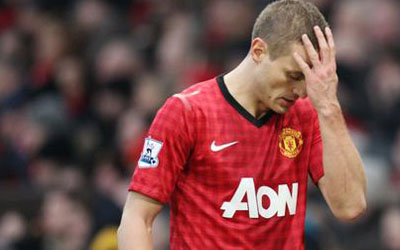Manchester United Marketing Manager Defends Sponsorship Strategy
January 24, 2013
Manchester United have denied that their vast sponsorship strategy has weakened the brand and that they have reached their limit.
Last week, United announced deals with two Chinese companies; the soft drink manufacturer Wahaha and China Construction Bank.
Following on from this, the Premier League side announced Japanese paint manufacturer Kansai as their official paint partner.
On top of these sponsorship deals, United have also bought out Sky’s one-third minority equity stake in MUTV, leading some critics to argue they have diluted their brand and cannot go any further.
Jonathan Rigby, Marketing Manager at Manchester United has moved to deny these claims. He said: “There is nothing of what we know of our own brand that suggests that is the case. We don’t see that at all. We see an increase in growth in the vibrancy of our brand.
“In fact we see the opposite. We see a fanbase that is growing, we see engagement levels growing, we see viewing figures continuing to grow. We don’t know how far we can go.
“We certainly don’t think we are reaching a limit. It is a model that is working very well. The evidence I see every day is that our partners get a huge amount and are all able to get their own part of Manchester United.”
United will also start a seven-year deal with car manufacturer Chevrolet in 2014, worth £357m ($563m).
The Red Devils posted a 13.7% increase in commercial income in their most recent annual results, rising to £117.6m ($185.5m).
In the recent Deloitte Football Money League, Manchester United recorded a total of €395.5m ($527.9m) in their earnings for 2011-12.
Steven Falk, Director of Star Sports Marketing, wen’t into detail about Manchester United’s sponsorship strategy.


